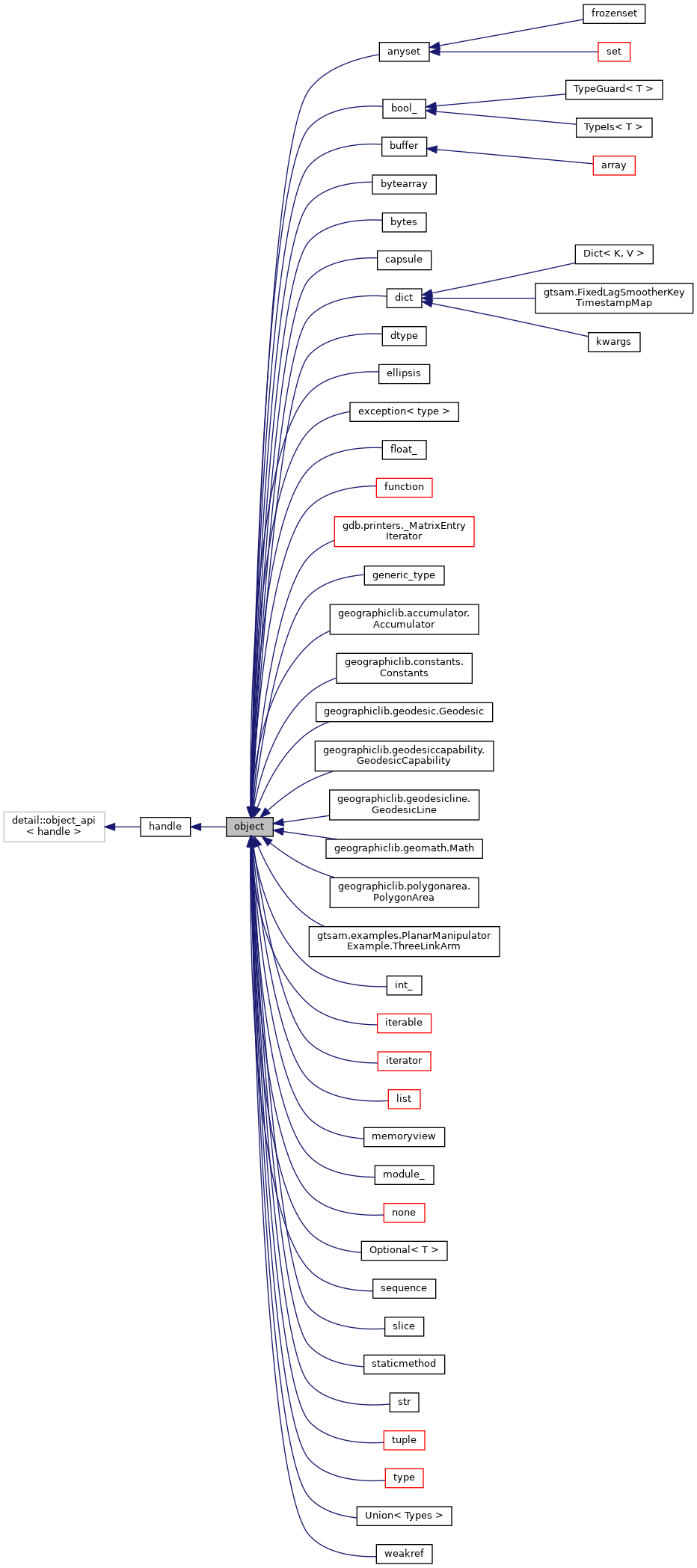|
| template<typename T > |
| T | cast () && |
| |
| template<typename T > |
| T | cast () const & |
| |
| template<> |
| void | cast () const & |
| |
| | object ()=default |
| |
| | object (const object &o) |
| | Copy constructor; always increases the reference count. More...
|
| |
| | object (handle h, borrowed_t) |
| |
| | object (handle h, stolen_t) |
| |
| | object (object &&other) noexcept |
| | Move constructor; steals the object from other and preserves its reference count. More...
|
| |
| object & | operator= (const object &other) |
| |
| object & | operator= (object &&other) noexcept |
| |
| | PYBIND11_DEPRECATED ("Use reinterpret_borrow<object>() or reinterpret_steal<object>()") object(handle h |
| |
| handle | release () |
| |
| | ~object () |
| | Destructor; automatically calls handle::dec_ref() More...
|
| |
 Public Member Functions inherited from handle Public Member Functions inherited from handle |
| template<typename T > |
| T | cast () const |
| |
| template<> |
| void | cast () const |
| |
| bool | check () const |
| |
| const handle & | dec_ref () const & |
| |
| | handle ()=default |
| | The default constructor creates a handle with a nullptr-valued pointer. More...
|
| |
| template<typename T , detail::enable_if_t< detail::all_of< detail::none_of< std::is_base_of< handle, T >, detail::is_pyobj_ptr_or_nullptr_t< T >>, std::is_convertible< T, PyObject * >>::value, int > = 0> |
| | handle (T &obj) |
| | Enable implicit conversion through T::operator PyObject *(). More...
|
| |
| template<typename T , detail::enable_if_t< detail::is_pyobj_ptr_or_nullptr_t< T >::value, int > = 0> |
| | handle (T ptr) |
| |
| const handle & | inc_ref () const & |
| |
| | operator bool () const |
| | Return true when the handle wraps a valid Python object. More...
|
| |
| bool | operator!= (const handle &h) const |
| |
| bool | operator== (const handle &h) const |
| |
| PyObject *& | ptr () |
| |
| PyObject * | ptr () const |
| | Return the underlying PyObject * pointer. More...
|
| |
\rst Holds a reference to a Python object (with reference counting)
Like handle, the object class is a thin wrapper around an arbitrary Python object (i.e. a PyObject * in Python's C API). In contrast to handle, it optionally increases the object's reference count upon construction, and it always* decreases the reference count when the object instance goes out of scope and is destructed. When using object instances consistently, it is much easier to get reference counting right at the first attempt. \endrst
Definition at line 364 of file pytypes.h.

 Public Member Functions inherited from handle
Public Member Functions inherited from handle Static Public Member Functions inherited from handle
Static Public Member Functions inherited from handle Protected Attributes inherited from handle
Protected Attributes inherited from handle